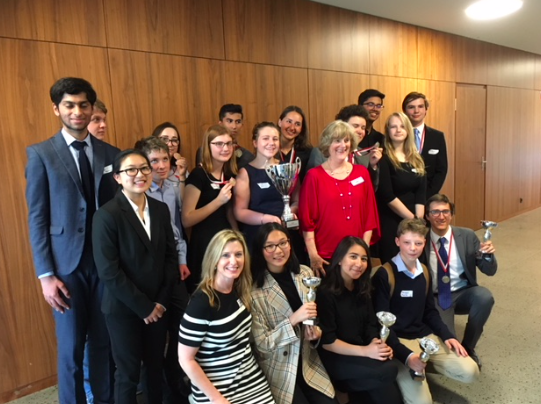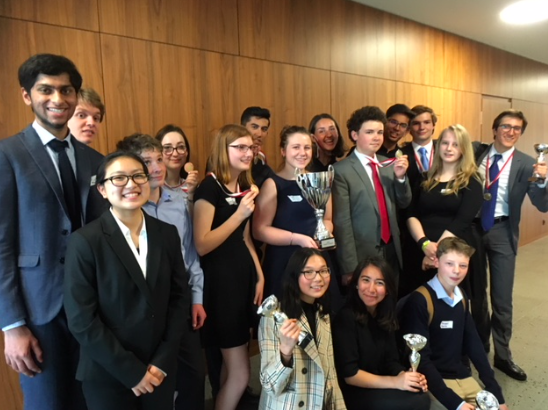Debate & Forensics Competition
- Nations Voice
- Apr 7, 2018
- 3 min read
On Saturday 21st April, our school successfully participated in the annual Swiss Group of International Schools (SGIS) Debate and Forensics competition. This is an annual competition which celebrates the skills involved in public speaking, global news, and debating. It is a great opportunity for all of us to act and come together as a school debating the issues which so strongly decide and run the world. From the junior debate on how “good fences make good neighbours” to the senior debate of “how time is ticking for democracy”, the competition was shaped by current, historical and socio-economic affairs.
Our school has participated in this competition multiple time and it had been two years since we had won the overall Team Cup (the cup awarded to the team with the greatest individual victories). This year however, we were strong, intellectual, the creme de la creme that swept all the opposition aside. In addition, the SGIS Debate and Forensics competition is not just debating. Students compete in at least two of the several categories; impromptu speaking, extemporaneous speaking, original oratory, oral interpretation of literature, duet acting and senior & junior debate. The different categories are great opportunities for stimulating your intellectual speeches and provoking thoughtful discussions.
The following are the SGIS Debate and Forensics category explanation:
Impromptu Speaking:
This is an extemporaneous oration on a topic unknown to the contestant until immediately before their performance. Ideally, it is an oral essay with an effective introduction, logical development, and a sound conclusion. There is a one-minute period before the speech for note-taking. No other notes may be used.
Won by: Laura Fitzpatrick, 3rd place - Year 9
Extemporaneous Speaking:
Each speaker researches a variety of international current events. There will be three different topics chosen by the Forensics coordinators in advance, and distributed to coaches at the beginning of the season. The speaker must be prepared to speak on any of the three topics, given a question prompt and a 30 minute preparation period. They then makes an approximately 5 -7 minute speech.
Won by: Antonio Pattori, 1st place - Year 12
Original Oratory:
Each speaker prepares a speech on a broad topic given to him. The topic then needs to be narrowed down and the speech needs to be learned by heart. Past examples topics include; currency, parliament, governments.
Won by: Alexander Strong, 2nd place - Year 10 & Patricija Klovakaite, 3rd place - Year 12
Oral Interpretation of Literature:
This is defined as the art of reading a selection from literature, and through the effective use of voice and body, communicating its intellectual and emotional content. It is a reading of a written text, not an acting performance.
Won by: Sarah Shafiq, 1st place - Year 10
Duet Acting:
This is defined as an excerpt from a full or one-act play, or published material of merit. Radio, TV and film scripts are also appropriate, but anonymous pieces taken from the internet should not be presented.
Junior debate Motion - “This house believes that high fences make good neighbours.”
Won by: Jasper Harte and Nandine Ganzorig, winners (1st place) - Year 10
Ana Van der Ree and Utsav Bahl, runners up (2nd place) - Year 1
Senior Debate Motions - “This House believes that time is ticking for Democracy” and “This house believes that we must always take sides.”
Won by: Antonio Pattori and Nathan Fitzpatrick, runners up (2nd place) - Year 12
Overall SGIS Debate and Forensics Team Prize (given to the team with the most medals): CAMPUS DES NATIONS!!!







Comments